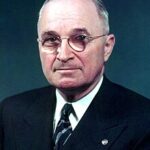President Harry Truman faced an unprecedented decision in August 1945. The atomic bombing Japan campaign would either end World War II quickly or unleash humanity’s most destructive force. Truman authorized the use of atomic weapons against Hiroshima on August 6 and Nagasaki on August 9.
The Decision Process
Truman inherited the Manhattan Project from Franklin Roosevelt. Military advisors estimated that Operation Downfall, the planned invasion of Japan, would cost 500,000 American lives. ⚠️ Intelligence reports suggested Japanese forces would fight to the death defending their homeland. The new president weighed these projections against using the untested atomic weapon.
Alternative Options Considered
Several alternatives existed before the atomic bombing Japan operation. Military leaders proposed continued conventional bombing and naval blockade. Some advisors suggested a demonstration bombing on an uninhabited area. 📊 Others recommended waiting for Soviet entry into the Pacific War. Secretary of War Henry Stimson advocated for maintaining the Emperor system to encourage surrender.
The Final Choice
Truman ultimately chose the atomic option without warning. He believed it would shock Japan into immediate surrender. The decision aimed to avoid prolonged warfare and save American lives. 💭 However, this choice would haunt presidential decision-making for generations.
Impact:
The atomic bombing Japan decision created immediate and lasting consequences across multiple spheres. Over 200,000 Japanese civilians died from the initial blasts and radiation effects. The bombings achieved their primary goal of forcing Japan’s surrender on August 15, 1945.
International Relations Transform
🌍 The atomic age fundamentally altered global diplomacy and military strategy. Nuclear weapons became the ultimate deterrent in international conflicts. The Soviet Union accelerated its own atomic program, beginning the nuclear arms race. Cold War tensions escalated as both superpowers developed larger arsenals. Nuclear proliferation became a central concern for world leaders.
Moral and Ethical Debates
The atomic bombing Japan controversy continues among historians and ethicists today. Critics argue the bombings constituted war crimes against civilian populations. They contend Japan was already defeated and seeking surrender terms. Supporters maintain the decision prevented greater casualties from invasion. 📉 Some scholars suggest racial prejudice influenced the choice to use atomic weapons against Asian targets.
Long-term Global Impact
🔥 Nuclear weapons reshaped military doctrine and international law worldwide. The bombings led to nuclear test ban treaties and non-proliferation agreements. Japan’s post-war pacifist constitution emerged partly from atomic trauma. Medical research on radiation effects advanced significantly through studying survivors. The decision established precedent for presidential authority over nuclear weapons that continues today.
